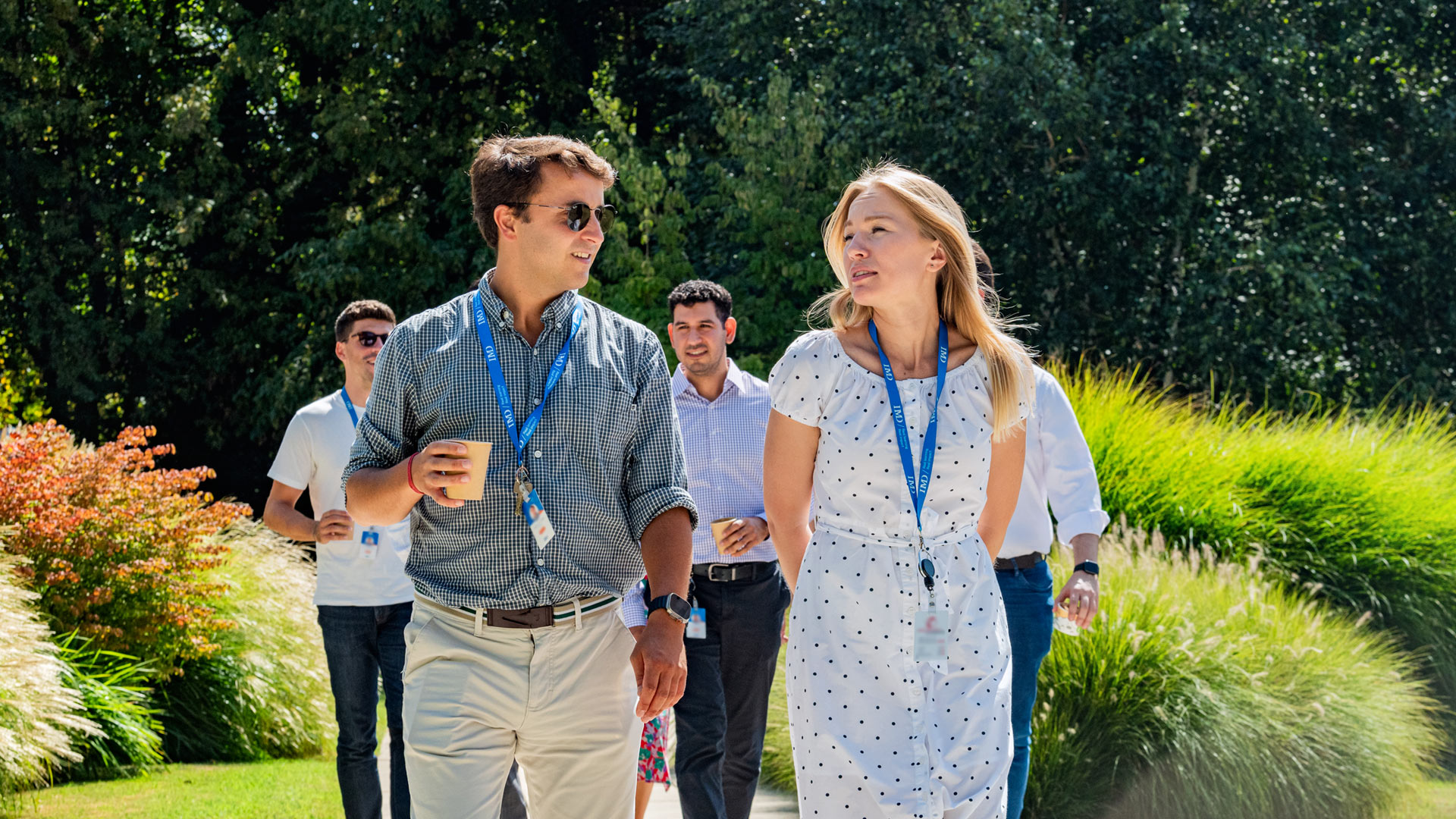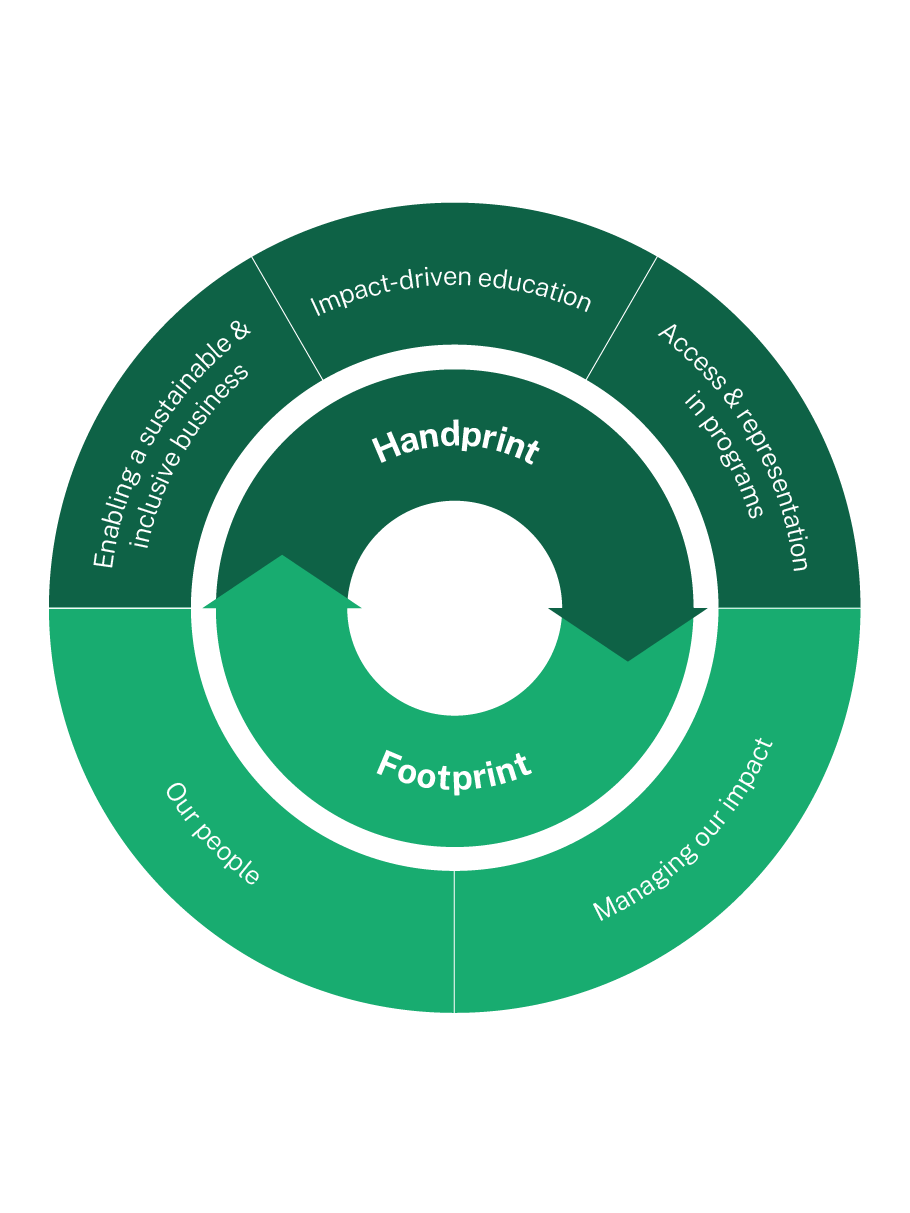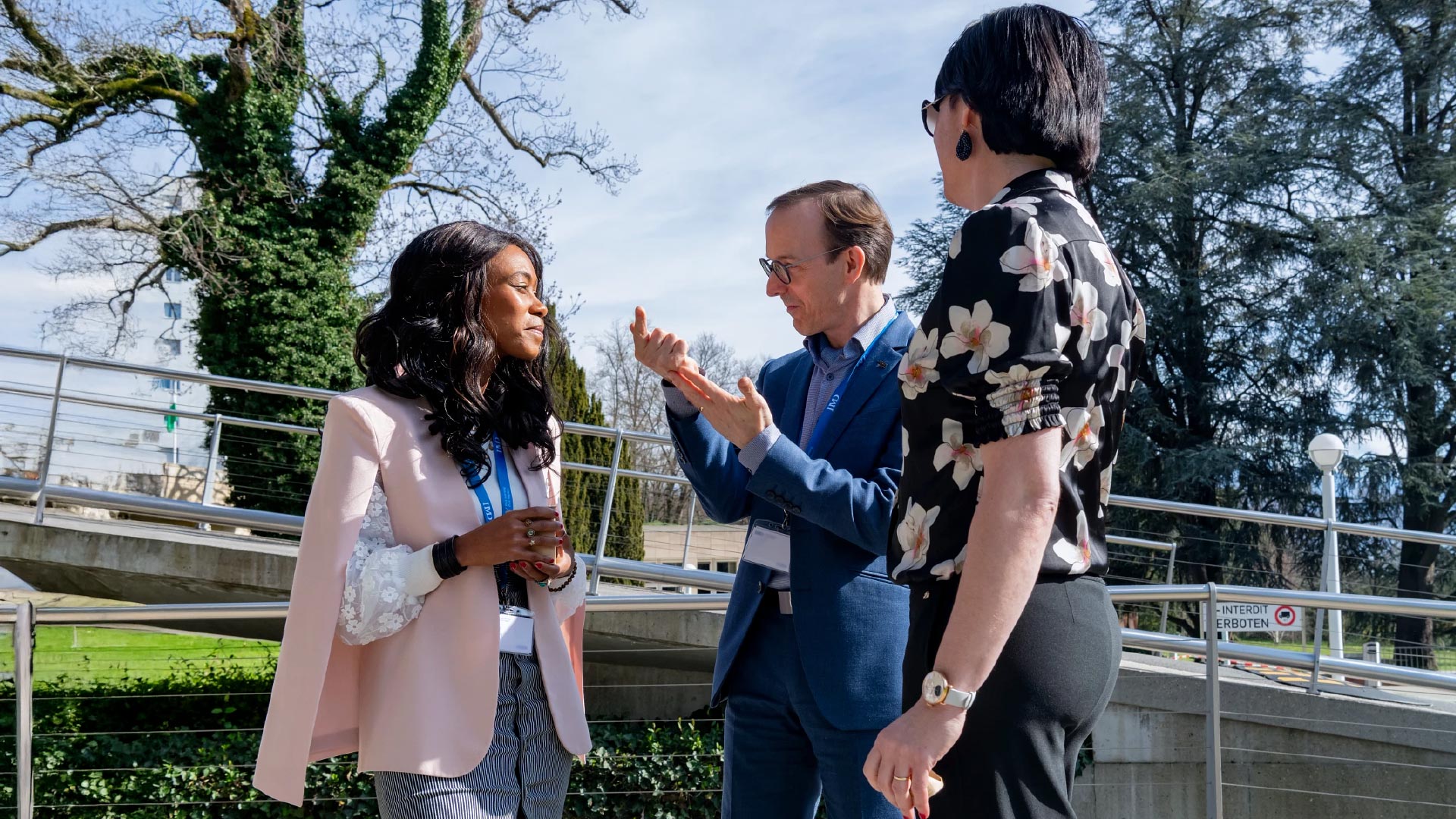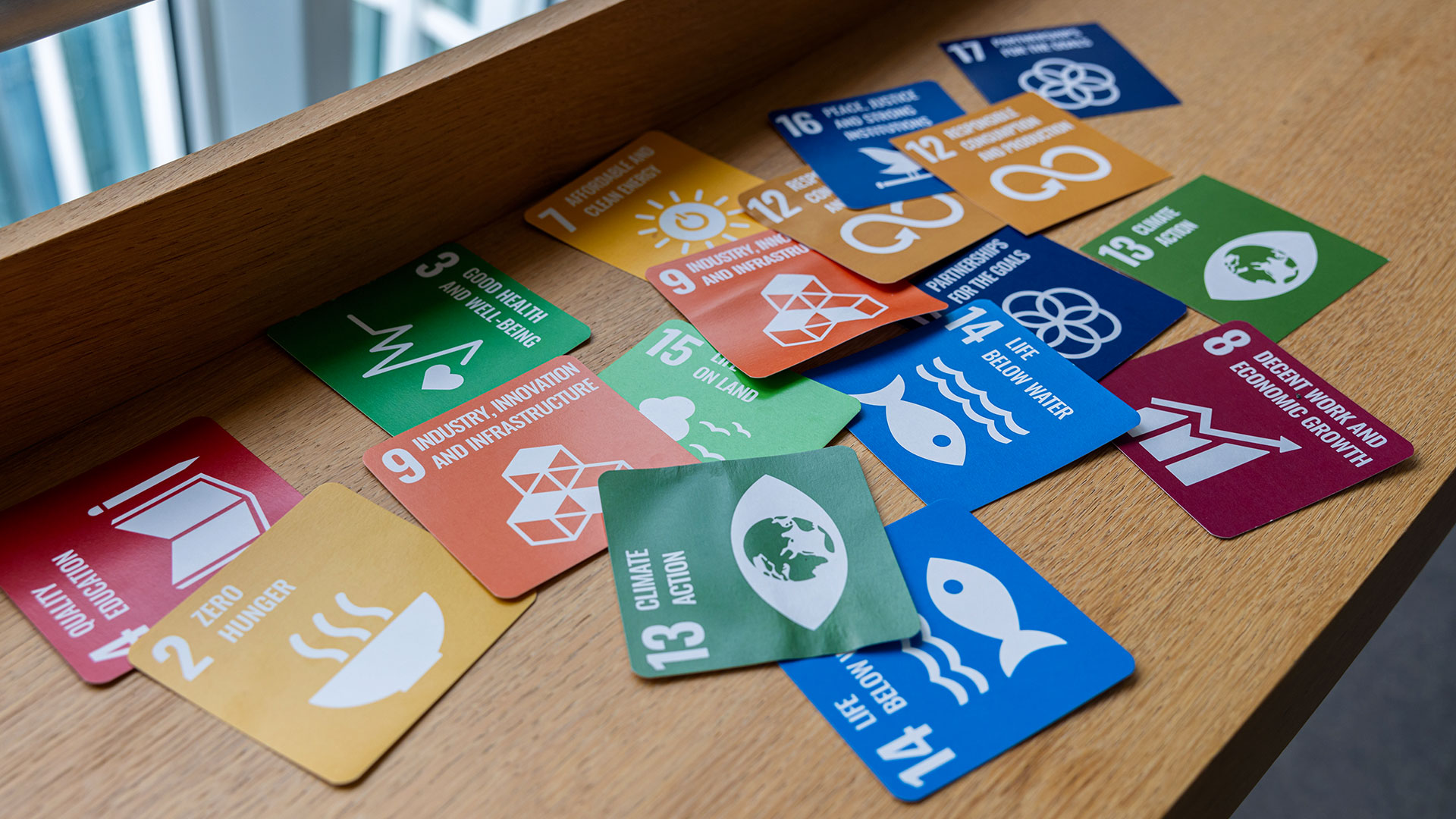IMD business school for management and leadership courses
About this report
This report details our journey over the last year as we deepen our commitment to sustainability through our learning, research, outreach, and campus operations. The data covers our performance against our key material focus areas. We view sustainability around the value we create (our handprint) and the impact we have (our footprint). You will see that this report is structured with this in mind. Sections 3-5 look at our handprint, and sections 6-7 look at our footprint. Sustainability reporting enables us to determine and communicate our material sustainability impacts and provides important information to all our stakeholders on the progress we are making.

What sustainability means to IMD
Our approach to sustainability is firmly anchored in IMD’s purpose:
Challenging what is and inspiring what could be, we develop leaders who transform organizations for a more prosperous, sustainable, and inclusive world.
As a leading business school with Swiss roots and global reach, we share responsibility for contributing to a more prosperous, inclusive, and sustainable world. We envision our role in two ways: by influencing businesses to be more sustainable through facilitating learning, developing research, and through our partnerships, and by demonstrating our commitment to sustainable behaviors through our campus operations and responsible and inclusive employment practices.
Sustainability comprises a broad range of environmental, social, and governance issues. To create real impact, we focus on those areas where we have the most influence. In 2023, we defined our approach through a materiality exercise.
Our approach considered the latest guidelines, including the Sustainability Reporting Directive (CSRD) and European Sustainability Reporting Standards (ESRS), which call for incorporating ‘double materiality.’ We also engaged with a wide range of stakeholders to assess key sustainability issues from two perspectives:
- Outside-in (financial): the risks and opportunities for IMD.
- Inside-out (social/environmental): the impact of IMD’s activities on society and the environment.
The process identified 12 material focus areas. Three were identified as transformational in terms of offering the greatest opportunities and magnifying our influence on society (our handprint):
- Impact-driven education, ensuring the continuous growth and impact of our work.
- Enabling inclusive and sustainable business, to inspire sustainable business models and the development of responsible leaders.
- Access and representation in programs, focusing on increasing diversity in our programs.
An additional nine areas focus on IMD’s own behaviors and are enablers fundamental to responsible business practices. These are addressed in the last two sections of the report.
- Diversity, equity, and inclusion in our workforce
- Employee attraction and development
- Emissions and pollution reduction
- Resource use and waste management
- Sustainable procurement
- Business ethics
- Health, safety, and well-being
- Data protection and information security
- Human rights and labor standards

Highlights of the year in review
In 2024, we achieved several important milestones, reaffirming IMD’s position as a global leader in business education that drives impact. Our efforts were recognized with an Ecovadis Gold Sustainability Rating.
- The circular business revolution: A practical framework for sustainable business models, by Julia Binder and Manuel Braun, and Leading the Sustainable Business Revolution by Julia Binder and Knut Haanaes were published
- Two white papers, Nature’s ROI: 5 Key Enablers to Building a Nature Positive Business Strategy, by Julia Binder, Adrian Dellecker, and the WWF, and Lead the Change launched by IMD and Cap Gemini Invent were published
- Four Sustainability Accelerator programs launched
- Selected for the 2024-2025 cohort of PRME Champions
- Two FT Responsible Education Awards – the Best School Award and the Teaching Award (highly commended)
- 2024 Learning in Practice Gold Award in the Excellence in Executive Education category for our transformative collaboration with Bayer
- Gold award for XR 360 Leadership Game SpheriCO2 for Immersive Experiential Learning at the QS Reimagine Education Conference
- We@IMD earned Gold for Best Advance in Education Delivered Through Technology at the Brandon Hall Group Excellence in Technology Awards
- 37% women in our MBA program, the highest number of female MBAs to date
- 44 nationalities in our MBA program
- MBA enrolment from Africa and the Middle East increased from 3% (2019) to 6% (2024)
- IMD and MIM Kyiv offered a Women’s Leadership Program sponsored by the Lundin Chair to support Ukrainian female leaders

- 55 nationalities represented in our workforce
- 57% of all employees and 33% of our leadership team are female
- We supported several initiatives in 2024 focused on healthcare, humanitarian aid, and children
- Observed select international awareness days
- 19% absolute reduction in Scope 1 and 2 emissions in 2024 compared to our baseline year measurement
- Two-thirds of Lausanne campus buildings have solar panels installed
- 70% of campus buildings have automated lighting systems installed
- The Mærsk Mc-Kinney Møller Center, our newest campus building, is heated and cooled geothermally using water from Lake Geneva
- District heating installed to improve energy efficiency
- New Supplier Code of Conduct approved for responsible procurement
